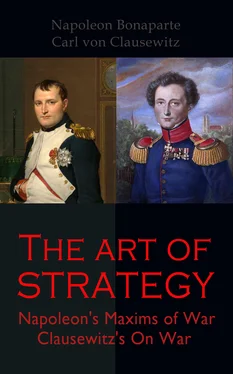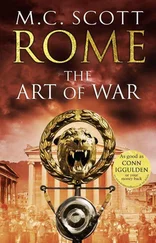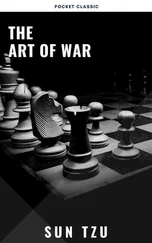Table of Contents
It is an approved maxim in war, never to do what the enemy wishes you to do, for this reason alone, that he desires it. A field of battle, therefore, which he has previously studied and reconnoitred, should be avoided, and double care should be taken where he has had time to fortify and entrench. One consequence deducible from this principle is, never to attack a position in front which you can gain by turning.
It was without due regard to this principle, that Marshal Villeroi, on assuming the command of the army of Italy, during the campaign of 1701, attacked, with unwarrantable presumption, Prince Eugene, of Savoy, in his entrenched position of Chiavi, on the Oglio. The French generals, Catinat among the rest, considered the post unassailable, but Villeroi insisted, and the result of this otherwise unimportant battle was the loss of the élite of the French army. It would have been greater still, but for Catinat’s exertions.
It was by neglecting the same principle, that the Prince of Condé, in the campaign of 1644, failed in all his attacks upon the entrenched position of the Bavarian army. The Count Merci, who commanded the latter, had drawn up his cavalry skilfully upon the plain, resting upon Freyberg, while his infantry occupied the mountain. After many fruitless attempts, the Prince of Condé, seeing the impossibility of dislodging the enemy, began to menace his communications—but the moment Merci perceived this, he broke up his camp and retired beyond the Black mountains.
Table of Contents
In a war of march and manœuvre, if you would avoid a battle with a superior army, it is necessary to entrench every night, and occupy a good defensive position. Those natural positions which are ordinarily met with, are not sufficient to protect an army against superior numbers without recourse to art.
The campaign of the French and Spanish army, commanded by the Duke of Berwick, against the Portuguese, in the year 1706, affords a good lesson on this subject. The two armies made almost the tour of Spain. They began the campaign near Badajoz, and after manœuvring across both Castiles, finished it in the kingdoms of Valencia and Murcia. The Duke of Berwick encamped his army eighty-five times, and although the campaign passed without a general action, he took about ten thousand prisoners from the enemy. Marshal Turenne also made a fine campaign of manœuvre against the Count Montécuculli, in 1675.
The imperial army having made its arrangements to pass the Rhine at Strasburg, Turenne used all diligence, and, throwing a bridge over the river near the village of Ottenheim, three leagues below Strasburg, he crossed with the French army, and encamped close to the little town of Vilstet, which he occupied. This position covered the bridge of Strasburg, so that, by this manœuvre, Turenne deprived the enemy of all approach to that city.
Upon this, Montécuculli made a movement with his whole army, threatening the bridge at Ottenheim, by which the French received their provisions from upper Alsace.
As soon as Turenne discovered the design of the enemy, he left a detachment at Vilstet, and made a rapid march with his whole force upon the village of Altenheim. This intermediate position between the two bridges, which he wished to preserve, gave him the advantage of being able to succor either of these posts before the enemy had time to carry them. Montécuculli seeing that any successful attack upon the bridges was not to be expected, resolved to pass the Rhine below Strasburg, and with this view returned to his first position at Offenburg. Marshal Turenne, who followed all the movements of the Austrian army, brought back his army also to Vilstet.
In the meantime, this attempt of the enemy having convinced the French general of the danger to which his bridge had exposed him, removed it nearer to that of Strasburg, in order to diminish the extent of ground he had to defend.
Montécuculli, having commanded the magistrates of Strasburg to collect materials for a bridge, moved to Scherzheim to receive them; but Turenne again defeated his projects by taking a position at Freistett, where he occupied the islands of the Rhine, and immediately constructed a stockade.
Thus it was that, during the whole of this campaign, Turenne succeeded in gaining the initiative of the enemy, and obliging him to follow his movements. He succeeded, also, by a rapid march, in cutting off Montécuculli from the Town of Offenburg, whence he drew his supplies, and would no doubt have prevented the Austrian general from effecting his junction with the corps of Caprara, had not a cannon-shot terminated this great man’s life.
Table of Contents
A general of ordinary talent occupying a bad position, and surprised by a superior force, seeks his safety in retreat; but a great captain supplies all deficiencies by his courage, and marches boldly to meet the attack. By this means he disconcerts his adversary; and if the latter shows any irresolution in his movements, a skilful leader, profiting by his indecision, may even hope for victory, or at least employ the day in manœuvring—at night he entrenches himself, or falls back to a better position. By this determined conduct he maintains the honor of his arms, the first essential to all military superiority.
In 1653, Marshal Turenne was surprised by the Prince of Condé, in a position where his army was completely compromised. He had the power, indeed, by an immediate retreat, of covering himself by the Somme, which he possessed the means of crossing at Peronne, and whence he was distant only half a league; but, fearing the influence of this retrograde movement on the morale of his army, Turenne balanced all disadvantages by his courage, and marched boldly to meet the enemy with very inferior forces. After marching a league, he found an advantageous position, where he made every disposition for a battle. It was three o’clock in the afternoon; but the Spaniards, exhausted with fatigue, hesitated to attack him, and Turenne having covered himself with entrenchments during the night, the enemy no longer dared to risk a general action, and broke up his camp.
Table of Contents
The transition from the defensive to the offensive is one of the most delicate operations.
By studying the first campaign of Napoleon in Italy, we can learn what genius and boldness may effect in passing with an army from the defensive to the offensive . The army of the allies, commanded by General Beaulieu, was provided with every means that could render it formidable. Its force amounted to eighty thousand men, and two hundred pieces of cannon. The French army, on the contrary, could number scarcely thirty thousand men under arms, and thirty pieces of cannon. For some time there had been no issue of meat, and even the bread was irregularly supplied. The infantry was ill clothed, the cavalry wretchedly mounted. All the draught-horses had perished from want, so that the service of the artillery was performed by mules. To remedy these evils, large disbursements were necessary; and such was the state of the finances, that the government had only been able to furnish two thousand louis in specie for the opening of the campaign. The French army could not possibly exist in this state. To advance or retreat was absolutely necessary. Aware of the advantage of surprising the enemy at the very outset of the campaign by some decisive blow, Napoleon prepared for it by recasting the morale of his army.
In a proclamation full of energy, he reminded them that an ignoble death alone remained for them, if they continued on the defensive; that they had nothing to expect from France, but everything to hope from victory. “Abundance courts you in the fertile plains of Italy,” said he; “are you deficient, soldiers, in constancy or in courage?” Profiting by the moment of enthusiasm which he had inspired, Napoleon concentrated his forces in order to fall with his whole weight on the different corps of the enemy. Immediately afterward, the battles of Montenotte, Milesimo, and Mondovi, added fresh confidence to the high opinion already entertained by the soldier for his chief; and that army which only a few days ago was encamped amid barren rocks, and consumed by famine, already aspired to the conquest of Italy. In one month after the opening of the campaign, Napoleon had terminated the war with the King of Sardinia, and conquered the Milanese. Rich cantonments soon dispelled from the recollection of the French soldier the misery and fatigue attendant on this rapid march, while a vigilant administration of the resources of the country reorganized the materiel of the French army, and created the means necessary for the attainment of future success.
Читать дальше












